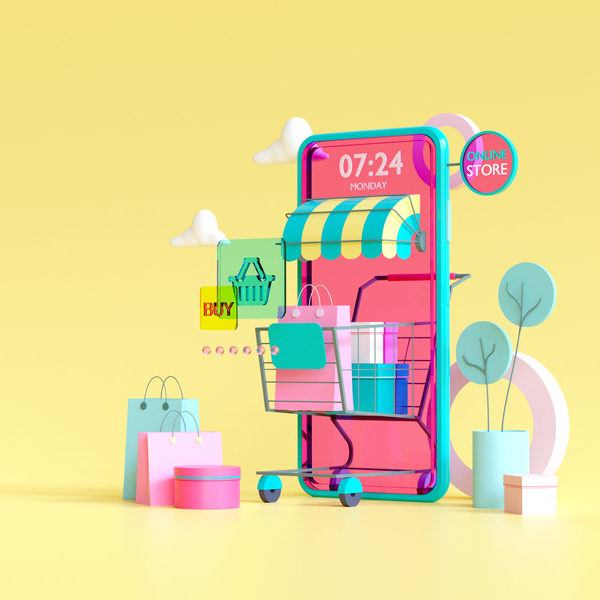Mobile use has spread rapidly around the world. Today, it is estimated more than 5 billion people have mobile devices, with smartphones making up more than half. And it’s easy to see why smartphones became so popular. With advances in technology, many programs and tasks you could only perform via laptop or desktop, you can now easily managed with smartphones and tablets. This makes smartphones an easier, and lighter choice, for users when heading out on the town.
By now, many of us are familiar with the term ‘e-commerce’. But there is a new term on the rise that ties right in with that smartphone in your back pocket: m-commerce.
What is m-commerce?
Also known as mobile commerce, m-commerce is a subcategory of e-commerce that uses wireless handheld devices like smartphones and tablets to make commercial transactions on the internet. This includes the buying and selling of products/services, online banking, and bill payment. Essentially any monetary transaction with a mobile device.
Why does mobile commerce matter?
The Europe 2020: E-commerce Region Report has found Western Europe to have the most developed e-commerce market in Europe, accounting for 70% of the total e-commerce market. While Western Europe has the highest volume of online shoppers at 83%, the largest growth can be found in Eastern Europe in Romania and Bulgaria with each growing 30% over last year.
At the end of 2020, e-commerce in Europe is expected to be worth €717 billion ($846 billion USD) according to a report by Retail X. By 2021, mobile e-commerce sales are expected to account for 54% of total e-commerce sales, an increase of 20% from 2017.
By failing to accommodate mobile users, small to medium businesses/enterprises (SMBs/SMEs) are leaving money on the table – and quite a lot of it, actually.
Serenity Gibbons of Forbes says, “The technology of the future is changing business today.” Technological advances are changing how we do business. If we want to be successful, we need to adapt to trends as they’re happening. And not when they’ve left us behind in the dust.
How can SEO help?
With more monetary transactions taking place on mobile devices than ever before, Google has restructured its search results to prioritize mobile-optimized websites. Retailers seeking to grow their share of e-commerce sales need a strategy that supports them in this booming market.
Website Optimization for Desktop and Mobile
When working on SEO, Boostability wants what Google wants—a phenomenal customer experience (on all devices). We use Google’s best practices and guidelines to ensure our partners and their customers have websites that run smoothly. That means correct titles, tags, categories, and organized so searchers can easily find them.
Quality Content
We live in an ‘on-the-go’ world. That means consumers don’t want to scroll through pages and pages of content looking for pricing or call-to-actions. They want to find what they are looking for, quickly and easily. Boostability relies on the talents of professional writers to write engaging and concise content to fill your website. Writers place keywords strategically throughout the content, not stuffed throughout in places where it doesn’t fit.
Intent to Buy
We interpret “searcher intent”—the action searchers intend to take—for each keyword. This helps us identify people who are more likely to come to a website ready to make a purchase. Rather than targeting users who are simply looking for information.
Boostability is Global
As a globally leading white label SEO agency, we service partners all across Europe in the Netherlands, Austria, Germany, Finland, Switzerland, and more. We get 86% of our partners’ customers in the top ten results on Google within six months of starting an SEO campaign.
The world runs on small to medium businesses, so we are passionate about helping SME/SMBs find success online. With the search landscape constantly evolving, we work with our partners to stay at the forefront of all things SEO. We keep everyone up-to-date as Google and other search engines roll out new guidelines.
Visit our SEO Partner Program page for more details about our international partnerships or read through our Ultimate Guide to White Label SEO Services for a better understanding of what you can expect with this program!

